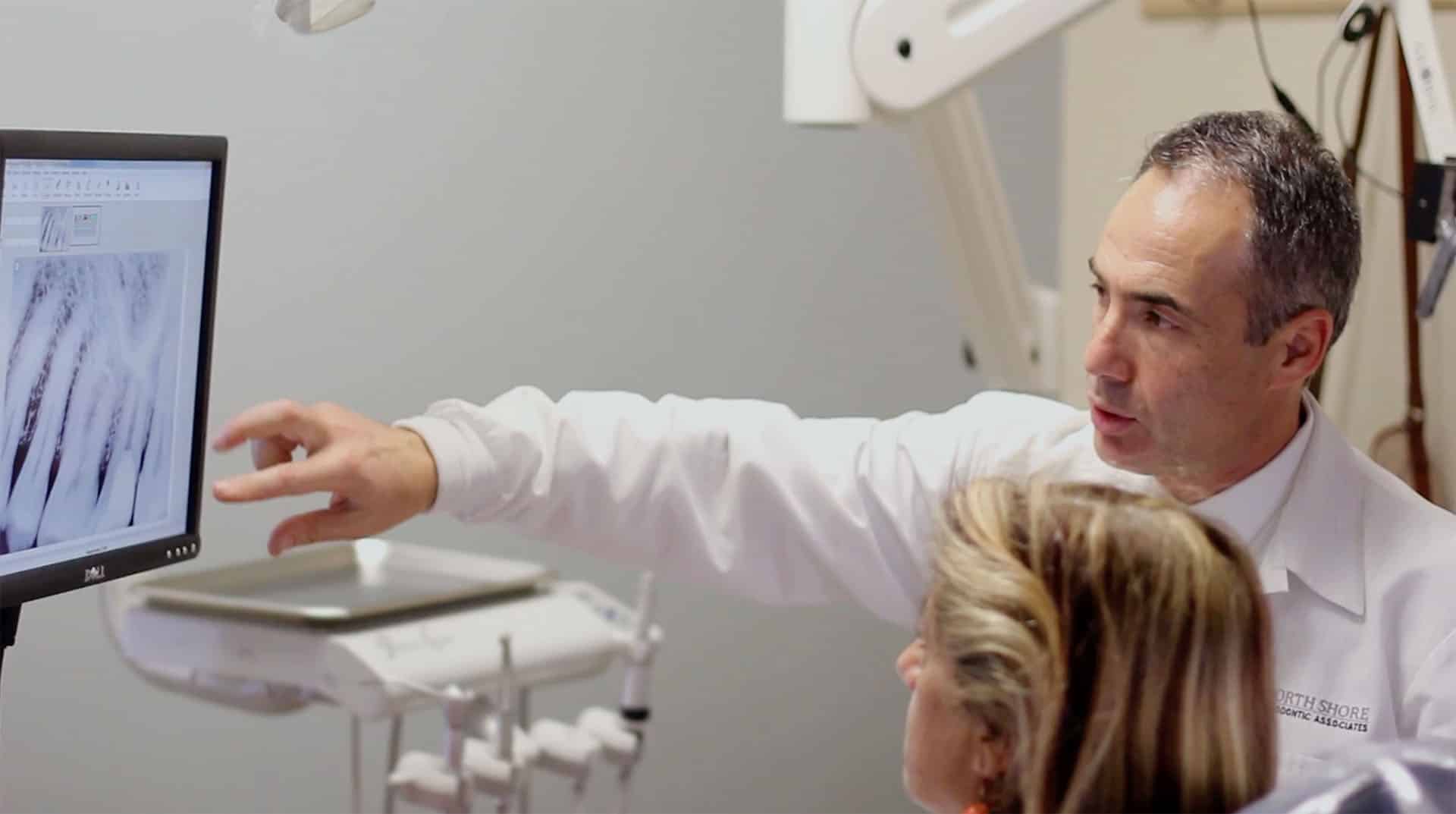
When Endodontic Re-Treatment Is Needed
North Shore & Brookline Endodontics provides endodontic therapy, including re-treatments, in Brookline, Peabody, Beverly, Gloucester, and Newburyport. Contact us today at one of our five locations to learn more about our services and schedule your appointment.
Root canal treatment enjoys a 90-95 percent success rate. Occasionally, infection returns and the root canal fails. In these circumstances, you may need a procedure called endodontic re-treatment.
Endodontic re-treatment involves reopening your tooth to clean, sanitize, and reshape the chamber and canals in order to save your tooth. At North Shore & Brookline Endodontic, we take the time to thoroughly assess the risk factors in every case. When needed, we use 3D imaging (CBCT scans) to evaluate and determine the best treatment option for your specific needs.
Endodontic re-treatment is best performed by endodontists. Endodontists receive two or more additional years of training after dental school in order to specialize in the treatment of tooth pain and root canals. No one is more qualified to perform these procedures than an endodontist, so you can feel confident knowing you’re getting the best possible care.
It is unusual for root canals not to heal properly, but complications can occur under the following circumstances:
- Calcified or narrow canals that were not initially treated
- Complicated root anatomy
- Delayed placement of a final restoration
- Bacterial leakage due to inadequate final restoration
- New decay
- A loose, cracked, or broken crown exposing the tooth to bacteria
- Fracture
In other cases, the initial root canal does heal properly, but reinfection occurs months or years down the line after a new injury or damage to the tooth.
Alternatives to Endodontic Re-Treatment
In some cases a surgical procedure called apicoectomy can be performed instead of re-treatments. If neither re-treatment or apicoectomy is possible, your tooth can be extracted and replaced by a bridge or dental implant. Our goal as endodontists is to preserve your teeth.
